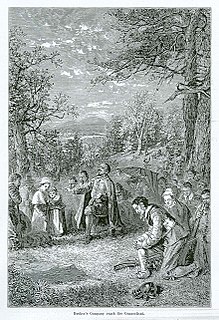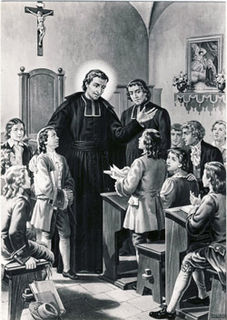A Quote by Homer
It is a wise child that knows his own father.
[Lat., Nondum enim quisquam suum parentem ipse cognosvit.]
Related Quotes
When the father is going on in his journey, if the child will not goe on, but stands gaping upon vanity, and when the father calls, he comes not, the onely way is this: the father steps aside behind a bush, and then the child runs and cries, and if he gets his father againe, he forsakes all his trifles, and walkes on more faster and more cheerefully with his father than ever.
It is generally said, "Past labors are pleasant," Euripides says, for you all know the Greek verse, "The recollection of past labors is pleasant."
[Lat., Vulgo enim dicitur, Jucundi acti labores: nec male Euripides: concludam, si potero, Latine: Graecum enim hunc versum nostis omnes: Suavis laborum est proeteritorum memoria.
When the father dies, he writes, the son becomes his own father and his own son. He looks at is son and sees himself in the face of the boy. He imagines what the boy sees when he looks at him and finds himself becoming his own father. Inexplicably, he is moved by this. It is not just the sight of the boy that moves him, not even the thought of standing inside his father, but what he sees in the boy of his own vanished past. It is a nostalgia for his own life that he feels, perhaps, a memory of his own boyhood as a son to his father.
As in the natural life a child must have a father and a mother, so in the supernatural life of grace a true child of the Church must have God for his Father and Mary for his mother. If he prides himself on having God for his Father but does not give to Mary the tender affection of a true child, he is an impostor and his father is the devil.



































